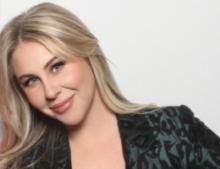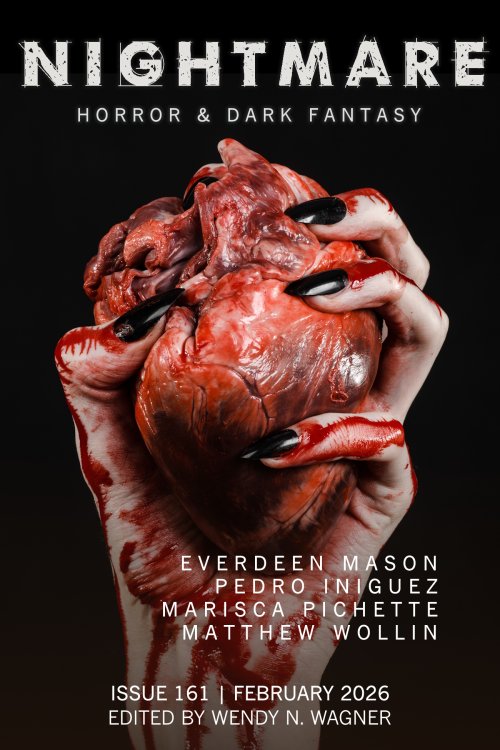Reality is a nightmare as it is, without ghosts, demons, or zombies.
It’s not just the serial killers, either. There are societal issues that are even more impactful, more widespread, but oftentimes overlooked.
What about the evils of children working in sweatshops? Abuse of a spouse? The silent foe of depression and the looming threat of war? Climate change and the waste of natural resources while people are starving or lack access to a clean water source? Or what about displaced families in war-torn countries and governmental control of our bodies? And we didn’t even touch upon the grip that the media has on our population, or how much power apps like Instagram and TikTok have over our mindsets. Our youth today are looking at these social media “stars” and want to be just like them, practically killing themselves trying.
And while we could talk at length about all of these, let’s take the subject of “consumerism,” for instance—and stay with me as I tell you some background information: I used to be in marketing.
I got into marketing as a shift of careers after college. It seemed like a nice idea at the time since I really hadn’t figured out what I wanted to do, didn’t end up pursuing what I went to college for in the first place, and I knew I wanted to do something creative. Something I could do that would combine my love of writing and my desire to have a sense of community.
At first, I enjoyed the work. It was a lot of simple work that came to me with ease: writing copy, social media management, web content, the works. I learned the ins-and-outs of how to sell products through words and pictures. And it was fun for me. Until it wasn’t.
I don’t know exactly the moment where it hit me, but I do know that it did, the realization that I was the person on the other side of the screen that could make people “swipe up” on whatever it was I was told needing swiping. I was responsible for those ads that I always saw myself, as a consumer, before it was my job. And it freaked me out a little, knowing that I now had that kind of influence on people. The same influence that had been exercised on me.
Now, I’m not saying that all material objects are horrible, bad, or that you should never buy anything, but what I am saying is there is a fine line between someone making a purchase because they feel something could improve their life and being made to believe that it’s the only thing that will.
We see the lives that other people are living through our screens and are constantly fed messages that if we just had ______ we would be so much happier! But what happens when you buy that _______? Are you?
I worried about that concept from time to time, and it continued to grow, to fester.
My experience in marketing, the secrets I was privy to in understanding what controlled people to make purchases: It felt like a strange power I had and one I didn’t really want anymore. I learned that everything within these ads and posts was designed to tap into that subconscious part of your mind to make you feel a sense of urgency in making that purchase right now. I learned that, by very design, social media apps were meant to mimic the addictive nature of a slot machine (ever notice how you scroll down to refresh your feed as a bunch of new shiny posts pop up?). And I learned that certain words and colors and fonts could change the way you felt about what you were seeing. Sounds scary, doesn’t it?
What’s more, I was suddenly hyper aware of it when it was happening to me. I would be scrolling on social media and something I mentioned yesterday would pop up on my phone. Maybe something I had clicked once would now be plastered all over my feed. In the past, I might have fallen prey to that but now I know that this is all a ploy to not only get me to buy it but to make me believe that my life would be markedly improved by having it. That I needed to do it again and again to feel that sensation. And that level of power these companies hope to achieve is terrifying.
And then I realized that I could turn this into something. Something that would help other people see what I already knew—just how much control this type of messaging has over us. Just how much control corporations hope to have over us. And that’s where the horror genre comes into play here.
Thus, my first short film project in the horror space was born with the aptly named title of “Consumed,” with a premise surrounding the idea of consumerism and just how much control it has, especially in an ever-increasing digital world. And as in real life, the film explores the complicated layers that contribute to one’s ability to be controlled—loss of a loved one, the inability to cope with depression, the need to feel happiness in an otherwise unhappy life. That magical rush you feel when you buy something new, when you get sent a special deal that saves you so much that you just can’t miss. It’s all designed to make you believe that you have to keep consuming. But what happens when you’re no longer the consumer? What happens when you’re the one being consumed? Just how dangerous could this get?
For the first time I felt like I could explore all the strange and non-linear ideas that I had come to see surrounding the negative side, the emotions stemming from my own experiences being on both sides of the coin.
I could put those strange concepts into something that was entertaining, while being able to speak to my own truth and one that would, most importantly, get people talking.
It’s why I love the work that I do in horror. I can take these small thoughts about the observed evils in the world and turn them into something entirely absorbable through a dramatic reimagining—and oddly enough, that’s something we find as human beings much more acceptable to face than the real-life horror story unfolding right in front of us.
I invite you, fellow horror lover, to take a look at your own life: what scares you? What do you see in the world that needs to be talked about more and why? Well, take that idea and turn it into something horrifying and get people having conversations around it. Through our individual voices we can remind people that there are horrors happening in our own lives and perhaps that may make us think a little differently about each other and the changes happening all around us in the future.









